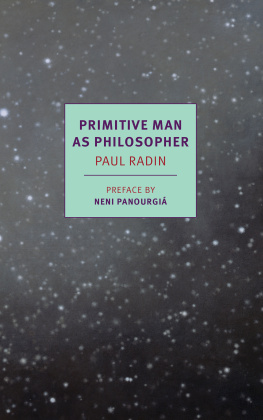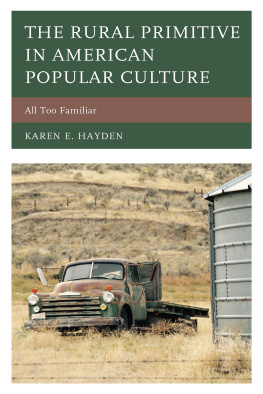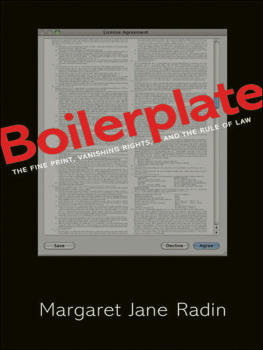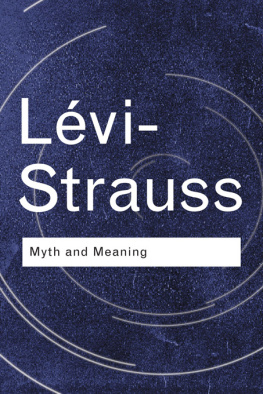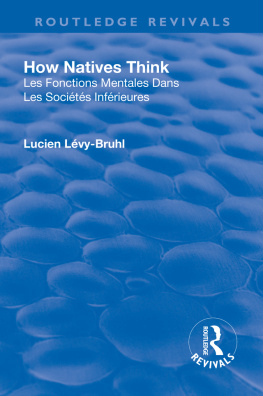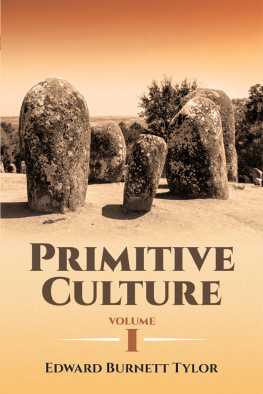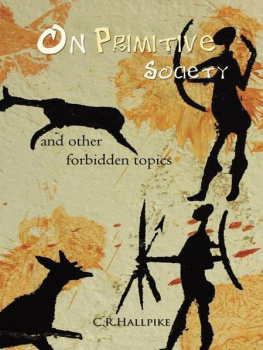
PAUL RADIN (18831959) was born in d in what is now Poland but immigrated with his family to Elmira, New York, in 1884. As a doctoral student in anthropology at Columbia University, he studied under Franz Boas, who had developed many of the modern methods of the discipline. While at Columbia, Radin began doing fieldwork with the Ojibwa and, in particular, the Winnebago Indians of Wisconsin, an ethnographic study that would continue for the rest of his life. He produced a series of landmark books and monographs documenting the tribes culture and customs, including The Winnebago Tribe (1923), Crashing Thunder: The Autobiography of an American Indian (1926), The Road of Life and Death: A Ritual Drama of the American Indians (1945), and The Trickster: A Study in American Indian Mythology (1956). Dedicated to studying and preserving the oral traditions and philosophies of both primitive and modern societies across the United States and the world, Radin pursued his research at more than a dozen universities and institutions, including the University of California at Berkeley, Black Mountain College, the C. G. Jung Institute in Switzerland, and Brandeis University, his final appointment. In the 1930s, he organized an ambitious ethnographic project with the Works Progress Administration to document the folk narratives from dozens of minority communities in the California Bay Area, while his later work focused on the languages of various Mexican-Indian communities. His books Primitive Religion: Its Nature and Origin (1937), The World of Primitive Man (1953), and Primitive Man as Philosopher (1927), collections of interviews that he conducted with members of dozens of primitive cultures, are classics in the field of anthropology.
JOHN DEWEY (18591952) was one of the leading American thinkers of the twentieth century. A psychologist and educational philosopher, he was one of the founders of the New School for Social Research. He is the author of more than two dozen books, including Democracy and Education (1916), Art as Experience (1934), and Freedom and Culture (1939).
NENI PANOURGI is a writer, translator, and professor of anthropology at the New School for Social Research. She is the author, most recently, of Dangerous Citizens: The Greek Left and the Terror of the State. She lives in New York City.
PRIMITIVE MAN AS PHILOSOPHER
PAUL RADIN
Foreword by
JOHN DEWEY
Preface by
NENI PANOURGI
NEW YORK REVIEW BOOKS

New York
THIS IS A NEW YORK REVIEW BOOK PUBLISHED BY THE NEW YORK REVIEW OF BOOKS
435 Hudson Street, New York, NY 10014
www.nyrb.com
Copyright 1927, 1955, 1957 by Paul Radin
Preface copyright 2017 by Neni Panourgi
All rights reserved.
Cover image: Vija Celmins, Night Sky #15, 20002001; Museum fr Moderne Kunst, Frankfurt; courtesy of the artist and McKee Gallery, New York
Cover design: Katy Homans
Library of Congress Cataloging-in-Publication Data
Radin, Paul, 18831959.
Primitive man as philosopher / Paul Radin ; preface by Neni Panourgi.
pages cm. (New York review books classics)
ISBN 9781-59017768-6 (paperback)
1. Ethnophilosophy. 2. Ethnopsychology. I. Title.
GN468.R33 2015
306dc23
2014029644
ISBN 9781-59017800-3
For a complete list of titles, visit www.nyrb.com or write to:
Catalog Requests, NYRB, 435 Hudson Street, New York, NY 10014
CONTENTS
XV. Speculation for Its Own Sake
Preface
F OR many who pick up this volume, Paul Radin will be a familiar figure, hardly in need of an introduction. He was a celebrated and influential, if maverick, figure in anthropology throughout much of the twentieth century, and a number of his booksnotably his study The Trickster, which includes responses by Carl Jung and Karl Kernyi, and The Road of Life and Deathhave long remained in print. Then again, those thinkers who appear to need no introduction are often the very ones whose accomplishments call for renewed critical engagement. This is very much the case with Radin and Primitive Man as Philosopher.
Paul Radin, the descendant of a prominent Reform Jewish family of doctors, lawyers, and Hebrew scholars, was born in 1883 in d, then part of the Russian Empire. His father, true to the familys tradition of humanism, was both a physician and a rabbi. In 1884, the Radin family left d for Elmira, New York, and in 1890 moved to New York City. Radin enrolled at City College to study zoology, but by the time he graduated in 1902, his interests had turned to history and the social sciences. After two years of study abroad, chiefly at the universities of Berlin and Munich, Radin returned to Columbia University, where he joined the circle of the influential anthropologist Franz Boas. As an anthropologist, Radin conducted fieldwork among the Winnebago Native American Nation of Wisconsin (today known primarily as the Ho-Chunk Nation), a connection that he kept throughout his life, and in 1911 he received his doctorate in anthropology.
Radins subsequent professional career was distinguished but also idiosyncratic and challenging. He held a succession of temporary positions and was unable to secure a permanent post until shortly before his death. After graduate school, he did research on the language and mythology of the indigenous Zapotec Tribe of Oaxaca (the Cloud People) for the Bureau of American Ethnology, and in 1914 Edward Sapir, a student of Boass who had gone on to become the director of the Geological Survey of Canada, hired Radin to work with the Ojibwa Native Americans in Ontario. Radin taught at the University of California at Berkeley for a time before returning to Europe. At Cambridge, he worked with W. H. R. Rivers, a participant in the Torres Straits Expedition of 1898the first anthropological research project carried out in the fieldwho had become well known for his work with World War I shell-shocked patients, including the poet Siegfried Sassoon. Radin also met and studied with Carl Jung in Zurich, whose theories of mythology and concepts of human type and temperament interested Radin and influenced his work.
Radin then came back to the United States, where he taught at Berkeley again, and at the University of Michigan among other institutions, before taking a position at the experimental Black Mountain College in North Carolina. Here Radins outspoken opposition to racial segregation led a colleague to denounce him to the FBI as a communist. Forced to leave Black Mountain, Radin was under surveillance by the FBI and the House Un-American Activities Committee for the rest of his life. Though he was able to go on working and writing thanks to the private support of Mary Mellon, the first wife of Paul Mellon, in 1949 Radin made up his mind to move to Europe, eventually settling in Lugano and taking a position at the C. G. Jung Institute. U.S. authorities still had him in their sights, however, and when he was threatened with confiscation of his passport, Radin managed a swift return to the States before the threat was realized. His final job was at Brandeis University, where he served as the chairman of the Department of Anthropology.
Throughout his career, Radin remained a committed progressive humanist, admired by colleagues for his modesty and integrity and for his aversion to intellectual hubris. He was an eccentric anthropologist (Grant Arndt has called him one of the most heterodox anthropologists among the first generation of Franz Boass students); an immanent humanist at a time when anthropology felt the need to move from the humanities and establish itself as a hard science; a poetic ethnographer deeply convinced that despite any existing differences the condition of being human was experienced in astonishingly similar ways, engaging with similar questions, experiencing similar angst, negotiating similar frustrations. But Radin recognized that humans are also different, and this dissimilitude, he maintained, disallowed for any possibility of uniform representation. As Mark Van Doren wrote in the preface to

